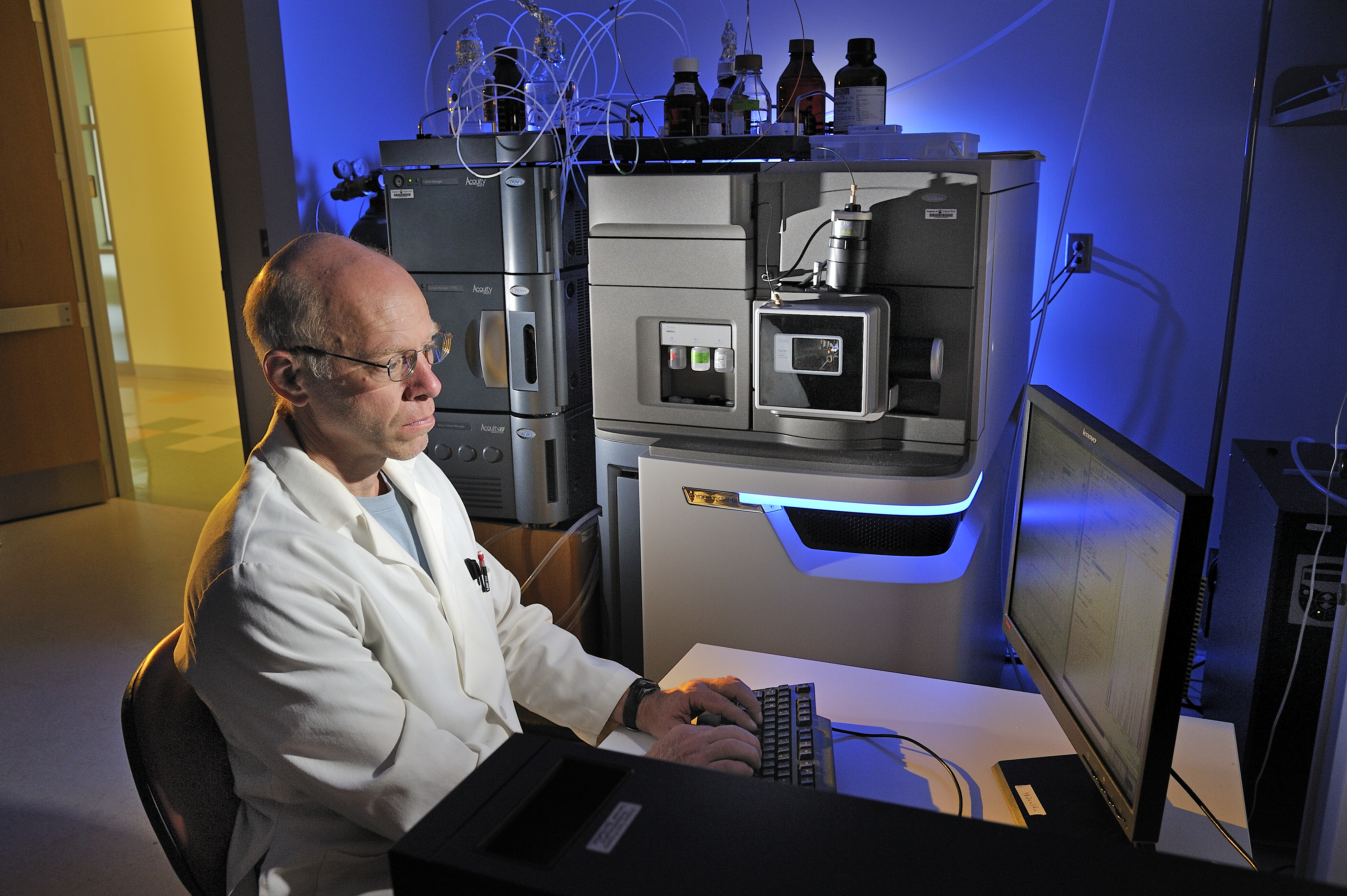Research instrument opens new avenues of discovery

Perhaps the most interesting thing about the College of Agriculture and Life Sciences’ new liquid chromatography-mass spectrometer isn’t that it is quicker and has 1,000 times more sensitivity than older ones — it’s how it enables research scientists to view the entire suite of metabolic processes in a living organism as an integrated, coordinated system and monitor how it adapts to dietary changes, environmental stresses, injury, and disease.
By being able to capture that larger view, it will help to determine how corn can better respond to drought, how to reduce water pollution, and how to develop more effective drugs, among other things. The instrumentation is used to detect the presence of individual chemicals in complex mixtures.
“We are able to ask questions that we could never ask before,” said Rich Helm, an associate professor of biochemistry.
Eleven different departments, colleges, and institutes across campus helped purchase the new $800,000 machine — a testament to how vital such a tool is to Virginia Tech researchers.
“This is going to help Virginia Tech continue to be a leader in finding the answers to some of today’s most pressing problems,” said Saied Mostaghimi, associate dean for research and graduate studies. “It opens up a whole new avenue of scientific discovery.”
More than 50 researchers across a variety of disciplines are planning on using the machine. Forthcoming applications include everything from developing better plants to feed our growing world to creating new drugs to combat deadly diseases.
“Instead of looking at just a little neighborhood within an organism, we are able to look at the entire molecular community and see the relationships and interconnectedness of the molecules,” said Peter Kennelly, head of the Department of Biochemistry. “This opens the door to understanding biological processes that effect health, production agriculture, and the environment in a whole new way.”
M.A. Saghai Maroof, a crop and soil environmental sciences professor, is using the new mass spectrometer to develop new soybean cultivars that will be better sources of animal feed and reduce water pollution problems from phosphorus runoff.
Eva Collakova, an assistant professor of plant pathology, physiology and weed science is using the mass spectrometer to determine how to metabolically engineer seeds for soybeans and other crops to increase the production of proteins or oils that enhance their nutritional value for humans and cattle. Engineered plants also will provide a richer source for producing biofuels, a renewable, domestically produced alternative to oil as an energy source.
“This new mass spectrometer will enhance our ability to receive funding and make the quality and scope of our work second to none,” Kennelly said.
The bulk of funding for the machine came from the Virginia Agriculture Experiment Station and the College of Agriculture and Life Sciences. Additional funding came from the departments of animal and poultry sciences, biochemistry, chemistry; human nutrition foods and exercise, plant pathology, physiology, and weed science, and biological sciences. Other funding came from the College of Science, Institute for Critical Science and Applied Science, Fralin Life Science Institute, and the Office of the Vice President for Research.





